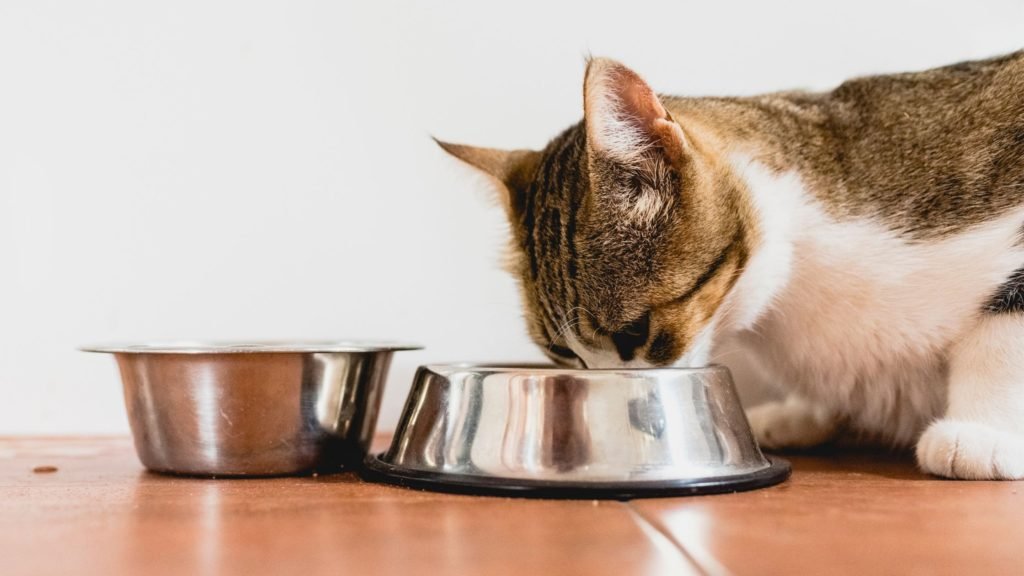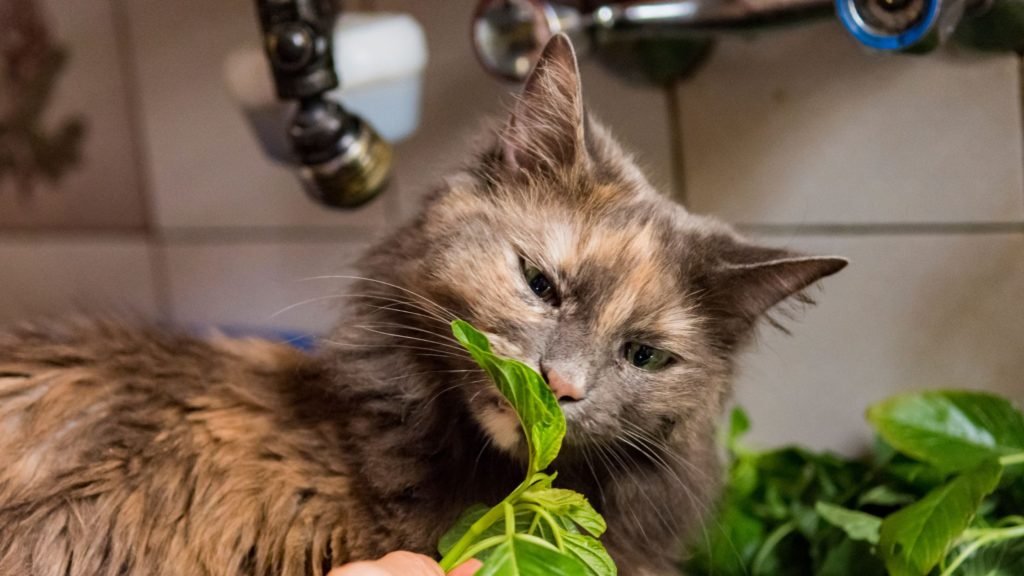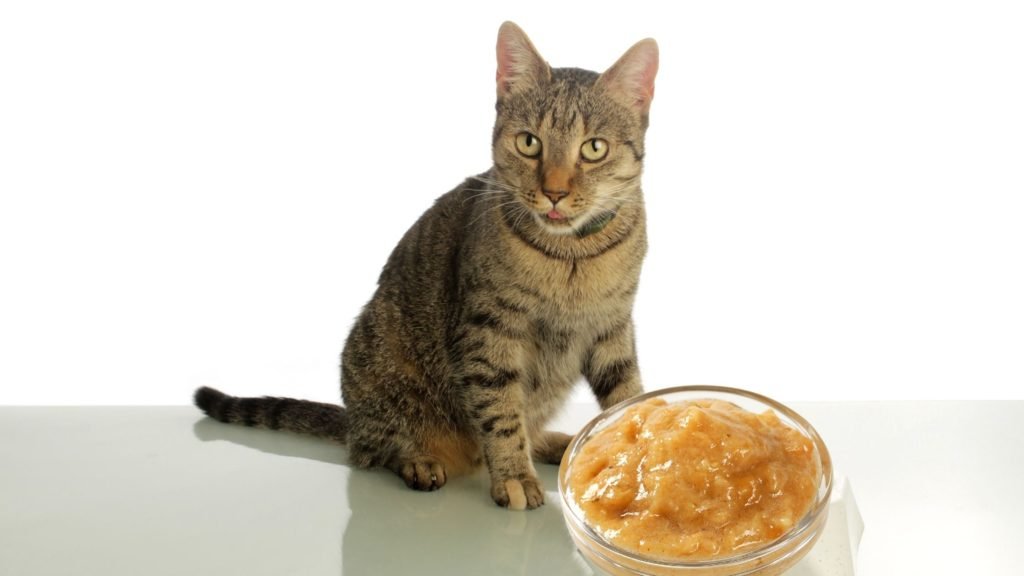Have you ever wondered if cats can eat applesauce? Explore feline nutrition and see if applesauce is a suitable treat.
Importance of understanding feline nutrition and diet
Decoding the mysterious world of feline nutrition is no small feat but indispensable for every doting cat parent. Nurturing your cat with a well-rounded and species-appropriate diet ensures its vitality, happiness, and overall well-being.
Nutritional needs of cats

Obligate carnivores: The significance of animal-based protein
Cats, the illustrious obligate carnivores, are bound by nature to thrive on a diet replete with animal-based protein. These proteins are the veritable cornucopia of essential amino acids that cats, unlike their canine counterparts, cannot synthesize independently.
Essential nutrients for cats: vitamins, minerals, and amino acids
Our enigmatic feline friends require a kaleidoscope of essential nutrients, including vitamins, minerals, and amino acids. Among these vital components, taurine is an amino acid crucial for a cat’s cardiac and ocular prowess. Equally important is arachidonic acid, a fatty acid indispensable for maintaining a lustrous coat and healthy skin. Furthermore, cats predominantly require a unique blend of vitamins and minerals, such as vitamins A, D, and calcium, in animal-based fare.
Foods to avoid for a cat’s health and well-being
In the labyrinthine realm of feline nutrition, sure edibles are verboten and should be eschewed to safeguard your cat’s health. These culinary culprits include chocolate, caffeine, alcohol, onions, garlic, grapes, raisins, and foods brimming with fat or sugar. Whether they wreak havoc on your cat’s digestive system or imperil their health more sinisterly, keeping these devious treats at bay is best.
You May Also Interest: All You Need To Know: Male Cats vs Female Cats Pros and Cons
Applesauce: ingredients and nutritional content
Apples: benefits and potential concerns
Ah, the humble apple – a veritable fiber and antioxidant treasure trove. However, this seemingly innocuous fruit harbors concerns regarding our feline friends. Though enticing, the saccharine sweetness of apples is hardly ideal for cats. Every apple has a few seeds, which can poison our whiskered friends with cyanide if eaten in large quantities.
Added ingredients: sugar, cinnamon, and preservatives
Venturing beyond pure apples, we encounter the mysterious world of applesauce. Many components, such as sugar, cinnamon, and preservatives, embellish the fruity base. While these additives may titillate the human palate, they are potentially nefarious for cats, sparking health problems if ingested in bountiful quantities.
The nutritional profile of applesauce
Alas, applesauce falls short of providing the sustenance our feline friends crave. Its limited protein level needs more nutrients than cats need to thrive, making it a poor food choice.
You May Also Interest: Captivating Feline Wonders: The World of Unique Cat Breeds
Potential effects of applesauce on cats
The role of fiber in a cat’s diet
While fiber may serve as a veritable panacea for many human ailments, its role in a cat’s diet is more nuanced. The thread in applesauce is good in moderation, but excessive consumption might cause gastrointestinal irritation in cats.
Sugar and its impact on feline health
Sugar – that alluring siren that has captivated countless human taste buds – holds no allure for our feline comrades. Excessive eating of sugary treats can lead to obesity and diabetes in cats, who don’t need them.
Possible allergic reactions and gastrointestinal issues
As if feline nutrition needed to be more tricky, some cats may be sensitive to apples or other ingredients in applesauce. These reactions can manifest in symptoms ranging from irritating itchiness to tumultuous gastrointestinal turmoil.
You May Also Interest: Do Cats Know When You Are Sad?
Safe alternatives to applesauce for cats

Fruit options: moderation and safety considerations
While applesauce may not be the pièce de resistance for our feline friends, other fruity delights can be offered as occasional treats. Tasty options such as blueberries or melon can safely tantalize their taste buds in moderation. However, one must tread cautiously, ensuring these fruity morsels are devoid of seeds, pits, or other hidden dangers.
Nutritional supplements: meeting feline dietary requirements
Should your cat require an extra dose of nourishment, consider bestowing them the gift of veterinarian-recommended nutritional supplements. These potions, explicitly crafted for felines, can help bridge any dietary gaps and ensure your cat remains the picture of health.
Consulting with a veterinarian for personalized advice
In the ever-shifting landscape of feline nutrition, the counsel of a knowledgeable veterinarian is an invaluable resource. Before embarking on a journey to introduce new foods or supplements into your cat’s diet, consult your trusted vet. Their wise guidance, personalized to your cat’s age, weight, and health, may help you navigate feline nutritional demands.
You May Also Interest: Is Wet Food Bad For Cats Teeth?: Discover The Truth
Summary of findings: Can cats eat applesauce?
So, can our feline compatriots partake in the velvety indulgence of applesauce? The answer, dear reader, is a resounding “perhaps not.” Though not inherently toxic, applesauce is ill-suited to cater to the nutritional whims of our whiskered companions. Its low protein content, absence of essential nutrients, and added sugars may lead to Pandora’s box of health issues.
Importance of providing a balanced and species-appropriate diet for cats
A balanced, species-appropriate food that meets our feline companions’ nutritional demands is essential to their health. By nourishing them with high-quality, animal-based protein sources and removing potentially harmful or nutrient-deficient foods. We can help our cats lead lives filled with health, happiness, and the occasional catnip-laden reverie.

